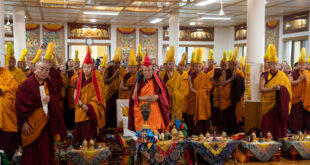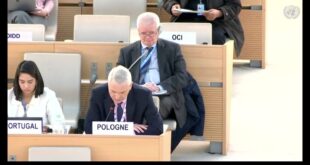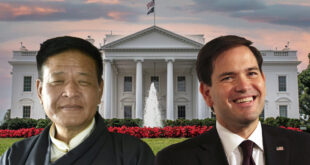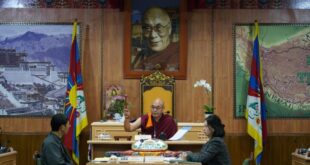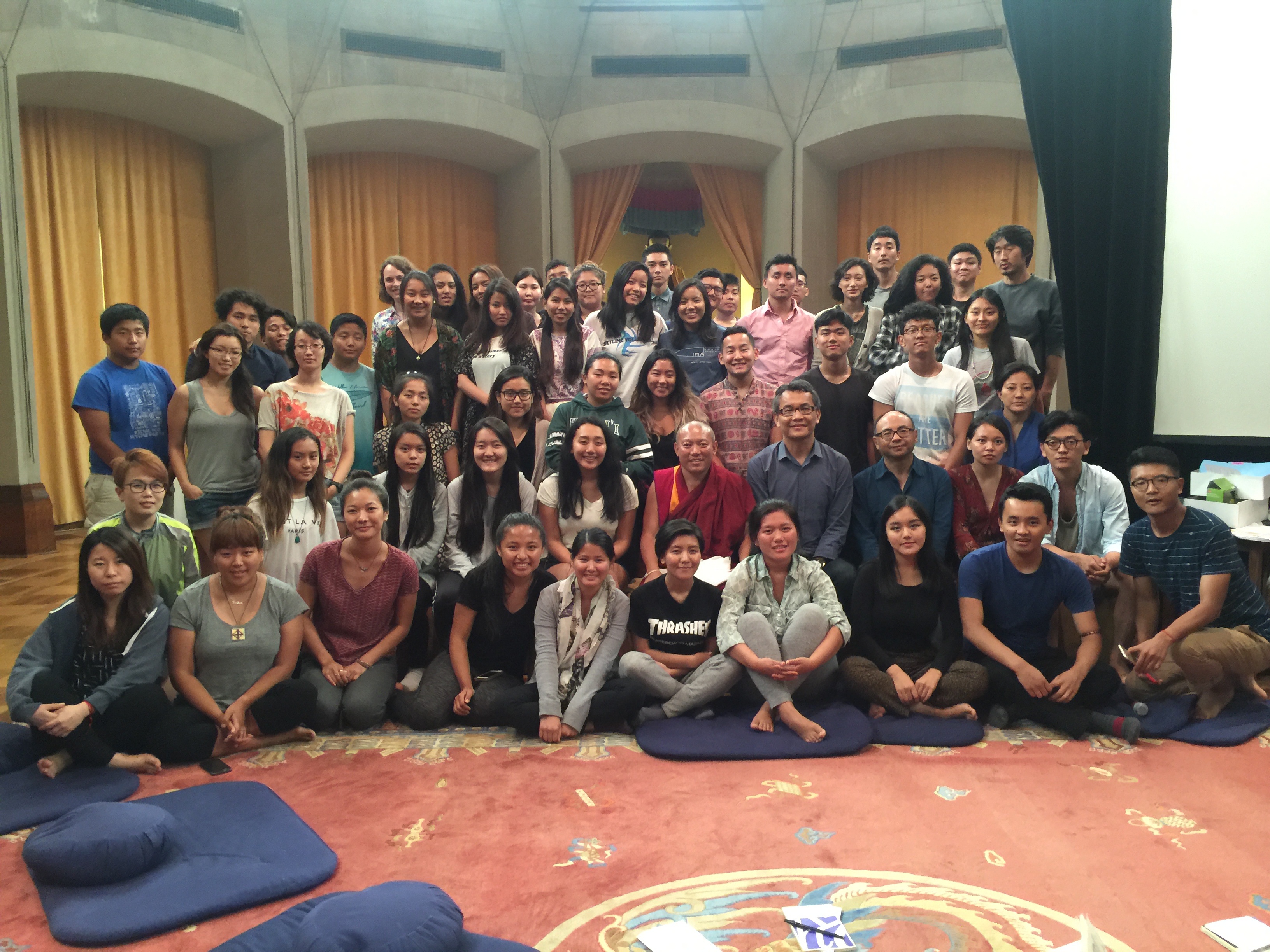
The Office of Tibet – Washington DC and the Dalai Lama Trust Organized a three-day Summer Buddhism Retreat for University Students and Young Professionals of Tibetan and Himalayan Buddhist Heritage.
The 2016 Summer Buddhism Retreat for university students and young professionals of Tibetan and Himalayan Buddhist heritage was held at the Garrison Institute, New York from July 4 to July 8, 2016. There were about 65 participants from United States and Canada. The primary aim of the retreat, which is sponsored by the Dalai Lama Trust USA, is to expose participants to the rich heritage of Tibetan Buddhism, explore the deeper meaning of Buddhist tenets and understanding how to use these practices within our everyday lives. We are deeply grateful to the Dalai Lama Trust for making the retreat possible.
This year’s retreat comprised of three core instructors in Geshe Ngawang Tenley, Nuptul Rinpoche and Tenzin Gelek. Professor Robert Thurman and Representative Kaydor Aukatsang served as visiting lecturers. Geshe Ngawang la with Tenzin Gelek interpreting taught students on how to do proper prostrations and its purpose. Geshe la further instructed students on the benefits of studying Buddhism, the valuable mental benefits acquired from examining and understanding the elusive self and analyzing anger.
Nuptul Rinpoche explained in depth the essence of practical contributions from Buddhism. Rinpoche emphasized the importance of keeping a positive mental attitude when tackling destructive emotions, and finding peace through meditation.
The instructors highlighted the importance of meditation for developing awareness, concentration, and doing analysis on anger, compassion and interdependence. They also comprehensively explained and facilitated a robust discussion with participants on the Four Noble Truth, law of causality, emptiness and two truths (ultimate and conventional).
Professor Thurman gave an interesting talk on Tibetan Buddhism and life in the work place and addressed several questions on emptiness, the two truths, consciousness, etc. He stressed Tibetan Buddhist culture’s practice of being other-oriented will encourage selflessness and reduce destructive self-centered attitude. He encouraged participants to appreciate and understand Tibetan Buddhism and its benefit.
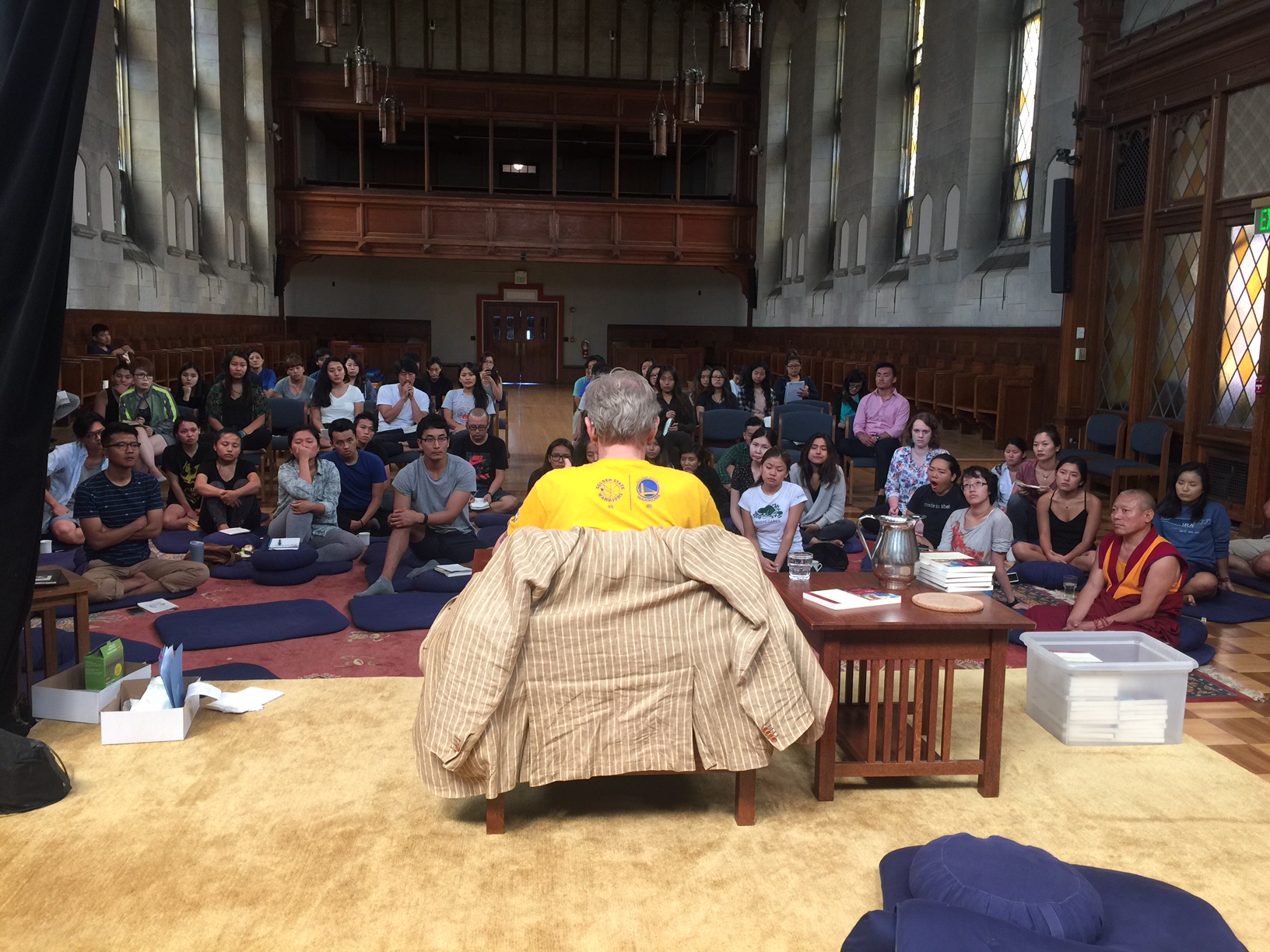
Representative Kaydor Aukatsang described and elaborated on the three commitments of His Holiness the Dalai Lama, which are promotion of core human values, promotion of religious harmony, and the preservation of Tibetan culture and environment. He also mentioned the mission and role of the Office of Tibet.
Retreat participants, which also included Mongolians, Kalmyks and Sherpas, had a chance to recap and discuss at the end of each day. One important discussion was on Tibetan language. The participants shared their own unique and personal experience of learning Tibetan language and mentioned their obstacles of limited opportunities to study and finding space for Tibetan in English-dominated environment.
The three days of retreat helped create a space and opportunity for young professionals and university students to connect with one another and enhance their understanding Tibetan Buddhism.
The Office of Tibet thank the Dalai Lama Trust, the Garrison Institute and all the instructors and resource people for their support.

